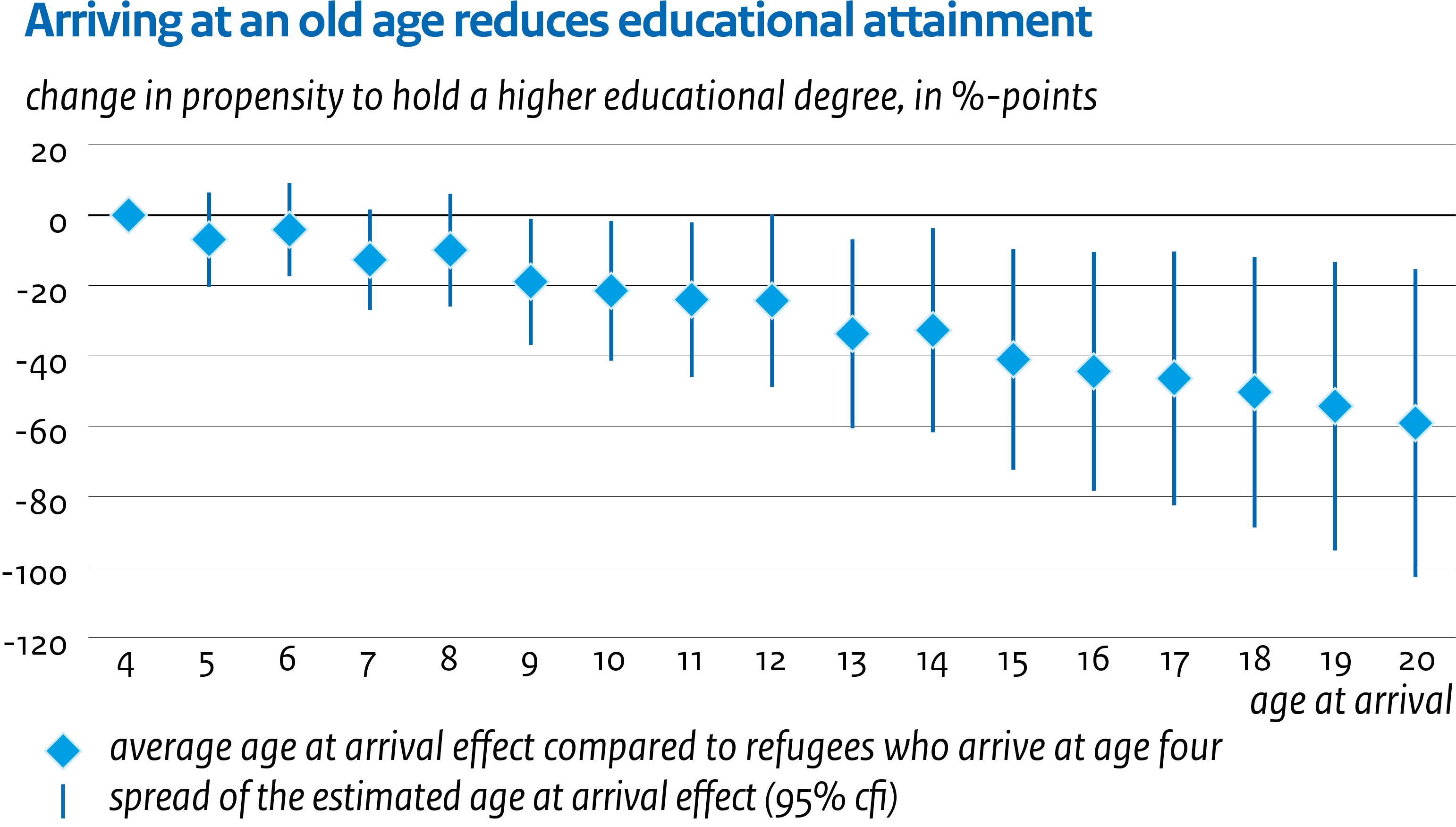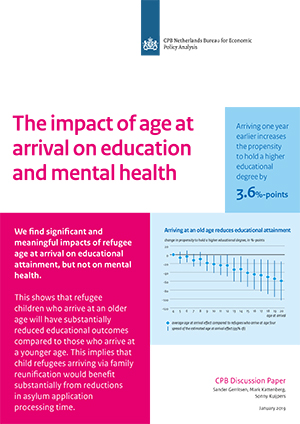The impact of age at arrival on education and mental health

Given the importance of education and mental health for labor market performance, we study how these outcomes are affected by the age at which refugees arrive in the country. We identify the causal impact of age at arrival by comparing siblings who share the same family background characteristics, but arrive at different ages. We find significant and meaningful impacts of age at arrival on educational attainment, but not on mental health. Arriving one year earlier increases the probability to obtain a higher educational degree by 3.6 percentage points. We find this impact to be stronger for girls than for boys. We do not find evidence suggesting that the impact of age at arrival becomes more pronounced after a specific age. Our findings carry important policy implications for the allocation of scarce resources available for integration of refugees as we show that refugee children who arrive at an older age will have substantially reduced educational outcomes compared to those who arrive at a younger age. This also implies that child refugees arriving via family reunification would benefit substantially from reductions in asylum application processing time, even if realized reductions are small.
Downloads
Authors


